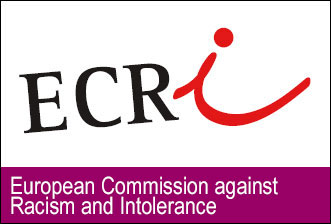The role of national Specialised Bodies in addressing underreporting of discrimination and hate crime
Seminar of the Council of Europe’s Anti-Racism Commission (ECRI) for national independent authorities combating racism and intolerance
Date: 28-29 May 2015
Venue: Strasbourg – Council of Europe, Palais de l’Europe.
Organised by: the European Commission against Racism and Intolerance (ECRI) of the Council of Europe.
Participants: representatives of member States’ independent authorities (specialised bodies) expressly entrusted with the fight against racism, xenophobia, antisemitism, intolerance and discrimination on grounds such as ethnic origin, colour, citizenship, religion and language (racial discrimination); members of ECRI; representatives of national Ombudspersons and national human rights institutions; as well as representatives of European and international intergovernmental organisations, NGOs, networks and professional groups.
Topic: discrimination and hate crime, even if distinct phenomena, are increasingly directed against the most vulnerable individuals of our society. Possibly more worrying is the fact that this reality is very seldom reported or not reported at all by the victims for fear of reprisals or simple ignorance of their rights and the bodies which are competent to provide assistance and/or redress.
Main aim: the seminar aimed to discuss the contribution that Specialised Bodies can make to overcoming barriers to the reporting of discrimination and hate crime, and collect promising examples of partnerships between specialised bodies, NGOs, the judiciary and police in this connection.
Specific objectives: the seminar addressed the following questions:
- How is underreporting of discrimination and hate crime monitored?
- What is the difference – concerning the role of Specialised Bodies - between underreporting of discrimination and underreporting of hate crime?
- What is done to measure underreporting?
- What could Specialised Bodies’ added value be?
- Are Specialised Bodies equipped to address underreporting?
- Is their mandate sufficiently clear and are their means adequate for this?
- What measures are taken to be closer to victims of discrimination and hate crime?
- Are these measures capable of affording the necessary protection to victims (actual and potential)?
- What steps are taken to facilitate reporting of hate crime?
- What are the main features of a communication strategy to address underreporting?
- What is the role of other stakeholders in contact with victims?
- How can international organisations, NGOs and networks cooperate with and provide support to Specialised Bodies?
Document



